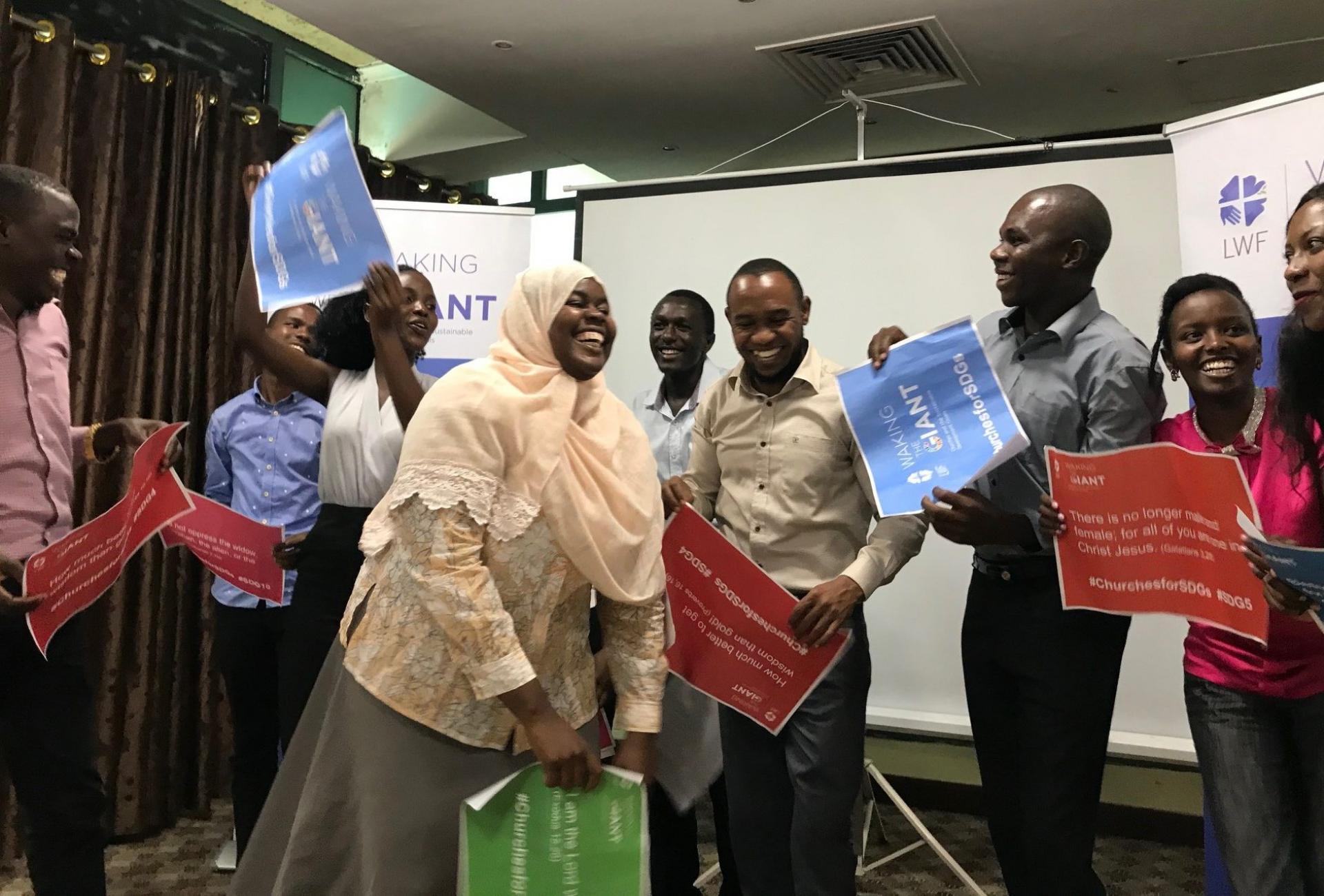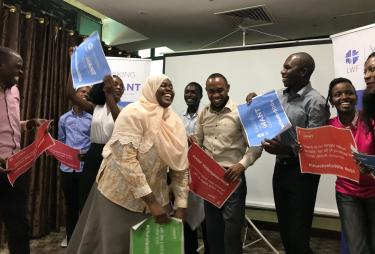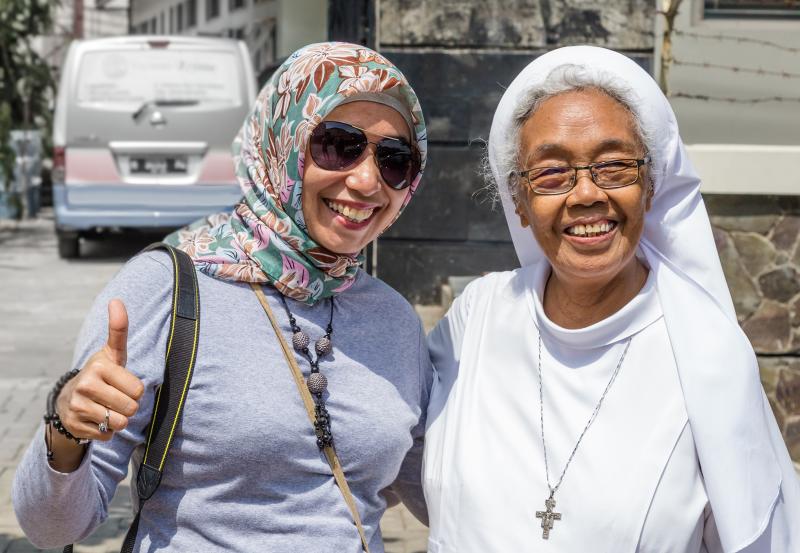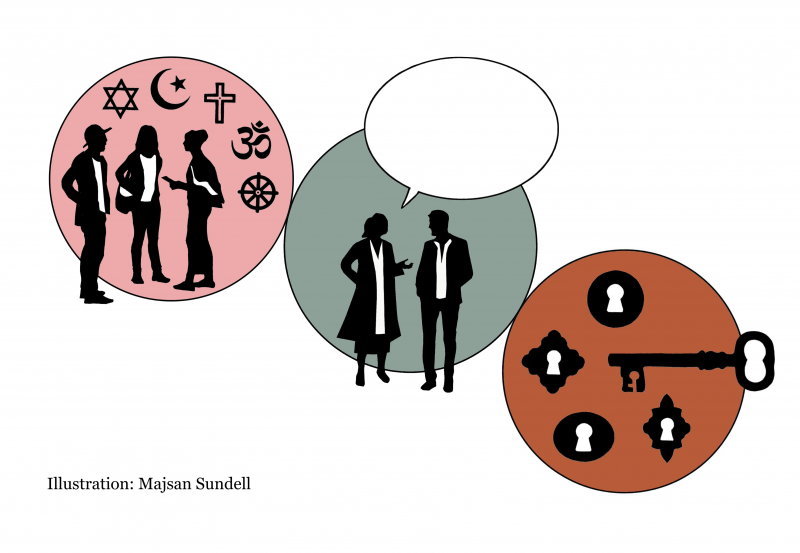Who Cares About Religion?
Tanzania Photo: Kerstin Bergeå


Religion and other beliefs affect how people think, act, and interpret the world that they live in. But religion is not only an issue for those of faith.
Everyone working with people in international development cooperation, in conflict situations, and in social or humanitarian work, needs knowledge about the role of religion in the particular context that they work in, in order to do a good job.
The World is Religious
More than 80 percent of the world’s population identify as religious. Values and moral issues, how we live our lives, what is perceived as right or wrong, good or bad, is often shaped by religious structures and by formal or informal religious leaders.
Religion and religious actors can have both a positive and negative influence on individuals and societies. We work to see the knowledge, experience, networks, and identity of religious actors integrated at a broader level in international interventions. We have, therefore, put together several tools to strengthen development actors’ and religious actor’s religious literacy.
Everyone Needs Religious Literacy
No-one is neutral. All people carry values and beliefs that shape our way of working and can come into conflict with the beliefs of other people. An increased awareness of this improves your religious literacy. With religious literacy, you are able to explore your own values in relation to other peoples’ faith and beliefs. In this way, you are better able to shape the conditions for a better world.
Religious literacy in 2023
Religious literacy is a prioritized thematic area for SMC and has a prominent role in the current strategy period. No other Swedish organization has invested such a large part of its identity in this thematic area or produced as much educational material. SMC’s long-term investment has had an impact both among Swedish civil society actors and international actors with an interest in the area traditionally referred to as “Religion and Development”.
Related documents
Hand out about religious literacy
Print or download to your device and learn more about religious literacy.
For Better For Worse
In this anthology from 2019 we explore the role of religion in development cooperation.
Policy for religious literacy
Adopted by the Board 2019-03-06
Guide to using our Toolbox for Religious Literacy (full version)
Use with our PowerPoint presentation available below: Toolbox for Religious Literacy (42,6 MB)
Guide to using our Toolbox for Religious Literacy (short version)
Use with our PowerPoint presentation available below: Toolbox for Religious Literacy (26,2 MB)


Petter Jakobsson
Senior Advisor for Mission and Theology, Religion and Development
+46 8 453 68 88petter.jakobsson@smc.globalFull version
Toolbox for Religious Literacy (42,6 MB)
The full version of our Toolbox for Religious literacy is a PowerPoint packed with resources for presentations or self-study. To help you navigate the material, we recommend that you download the PDF-guide available above.
Short version
Toolbox for Religious Literacy (26,2 MB)
This is a shorter version of our Toolbox for Religious Literacy containing a selection of 70 slides from the full version. To help you navigate the material, we recommend that you download the PDF-guide available above.


Faith and Democracy Belong Together
Respect for human rights is a prerequisite for a democratic society. Based on our Christian values, we believe that every human being is created in the image of God and has inviolable and equal rights to live his or her life in freedom.
Read more about Faith and Democracy

Learn more about Religious Literacy through our course
With our digital course on religious literacy, you can learn more about your own values in relation to other people’s faith and beliefs.
Read more about our course on Religous LiteracyAdvocacy with Faith in Development
We are knowledge based, working with freedom of religion or belief, religious literacy and development policy.

